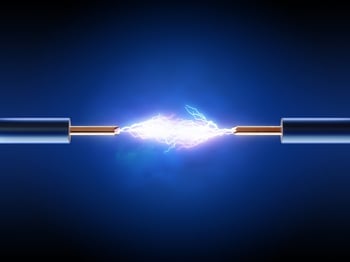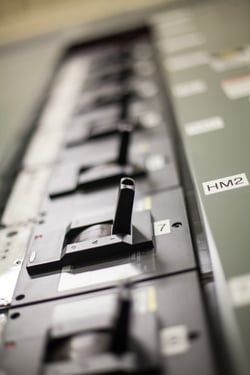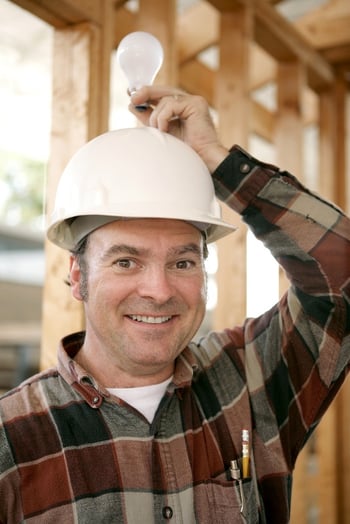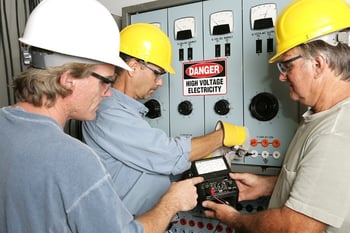
Nearly everyone remembers taking a balloon as a kid, rubbing it on your sweater or a woolen blanket, and holding it above your head to make it stand on end. It was fun to play with static electricity when you were younger. We’ll even admit that it’s fun to rub your feet on a rug and deliver a shock to an unsuspecting passerby. However, while those games may be fun for children, there are worse consequences to static electricity. Here’s what you need to know.
Potentially Dangerous Static Shocks
The same static electricity that was fun when you were a kid can be potentially dangerous in the wrong situations. One such situation is when there is gasoline or another airborne flammable material in the air. In those situations, the sparks from static shocks can ignite the airborne gas, causing a potentially dangerous explosion. Static shocks can also, in very, very rare situations, be potentially dangerous to people with pacemakers.
Static Electricity and Electronics
While it is highly unlikely that you would be injured as a result of static electricity, even though it is possible, it’s far more likely that electronics including computers and other office machinery, could be damaged by static discharge.
Basically, electrostatic discharge, or ESD, is a tiny, miniature version of lightning, and it can be just as destructive on the micro level of circuit boards. The energy from the shock travels through the nearest object, in this case the circuitry of the electronics, and destroys critical elements along the way.
While this is the literal equivalent of the electrical storm in a tea cup, there are ways to prevent damage to your equipment from static electricity:
- Technicians working on electronic equipment should use an ESD wrist strap, which helps to dissipate charge away from the circuitry.
- Avoid placing synthetic materials such a plastic and polystyrene near electronics. These materials are commonly the cause of static discharge.
- Avoid using compressed air to clean circuit boards.
- Only use non-static forming sprays on electronics.
- Treat carpets to prevent static buildup, and invest in static proof mats if you still have trouble.
- Restrict access to computers and other electronics to staff or contractors who have experience in working with them, and who know how to prevent static discharge.
- Regulated humidity system.
Static charges can destroy electronic equipment. So can power surges and electrical storms. Take precautions to avoid damage by static electricity to your delicate electronics, and speak to your commercial electric company to make sure that your office and business premises is adequately protected against power surges. Surge protectors, ensuring that your building and electrical systems are properly grounded and setting up “Zones of Protection” within your facility can all keep your equipment, electronics and people safer.
This is particularly important for items like your server, where critical data is stored. The simple fact is that unregulated, unexpected power is bad for your electronics and equipment, whether the cause is your feet on the carpet or a lightning strike during a storm. It’s always better (and cheaper) to be safe, rather than sorry.





 Very often these days,
Very often these days, 
 Most people do not think of power and data at the same time. We have become so used to having computers around, and so used to them storing our information, entertaining us and helping us to connect that we hardly think of them as appliances at all. However, since computers rely on power to operate,
Most people do not think of power and data at the same time. We have become so used to having computers around, and so used to them storing our information, entertaining us and helping us to connect that we hardly think of them as appliances at all. However, since computers rely on power to operate,  Many residential (and some commercial) customers don’t realize that when they hire a general contractor to
Many residential (and some commercial) customers don’t realize that when they hire a general contractor to  If your business has grown, or you have replaced old equipment with new, then you might already have outgrown your current commercial panel. Likewise, if your building was built in the 50’s, 60’s or 70’s, there is a good chance that your commercial panel might be using outdated technology.
If your business has grown, or you have replaced old equipment with new, then you might already have outgrown your current commercial panel. Likewise, if your building was built in the 50’s, 60’s or 70’s, there is a good chance that your commercial panel might be using outdated technology. When most people think of smoke alarms, they think of the battery operated alarm units installed in their homes. However, while those are certainly the most common type of smoke alarm, there are also hardwired smoke alarm options that are much better suited to commercial and industrial applications.
When most people think of smoke alarms, they think of the battery operated alarm units installed in their homes. However, while those are certainly the most common type of smoke alarm, there are also hardwired smoke alarm options that are much better suited to commercial and industrial applications. When Thomas Edison perfected the first commercially viable electric lightbulb in 1879, he probably had no idea that a couple of hundred years later, there would be so many variations on his idea. However, there have been many leaps and bounds in electric lighting since then, and there are hundreds of different types of lightbulb on the market today. Here is a brief outline of the most common types.
When Thomas Edison perfected the first commercially viable electric lightbulb in 1879, he probably had no idea that a couple of hundred years later, there would be so many variations on his idea. However, there have been many leaps and bounds in electric lighting since then, and there are hundreds of different types of lightbulb on the market today. Here is a brief outline of the most common types. In the USA there are a number of
In the USA there are a number of  Renovations are a necessary evil most businesses have to go through eventually. If your business is growing, your building and its capabilities have to grow with it. Ideally, you'll include enough innovation in your upgrade to keep from having to repeat the process for a number of years. The best upgrades include innovations aimed toward the future as well as needed improvements for today.
Renovations are a necessary evil most businesses have to go through eventually. If your business is growing, your building and its capabilities have to grow with it. Ideally, you'll include enough innovation in your upgrade to keep from having to repeat the process for a number of years. The best upgrades include innovations aimed toward the future as well as needed improvements for today.